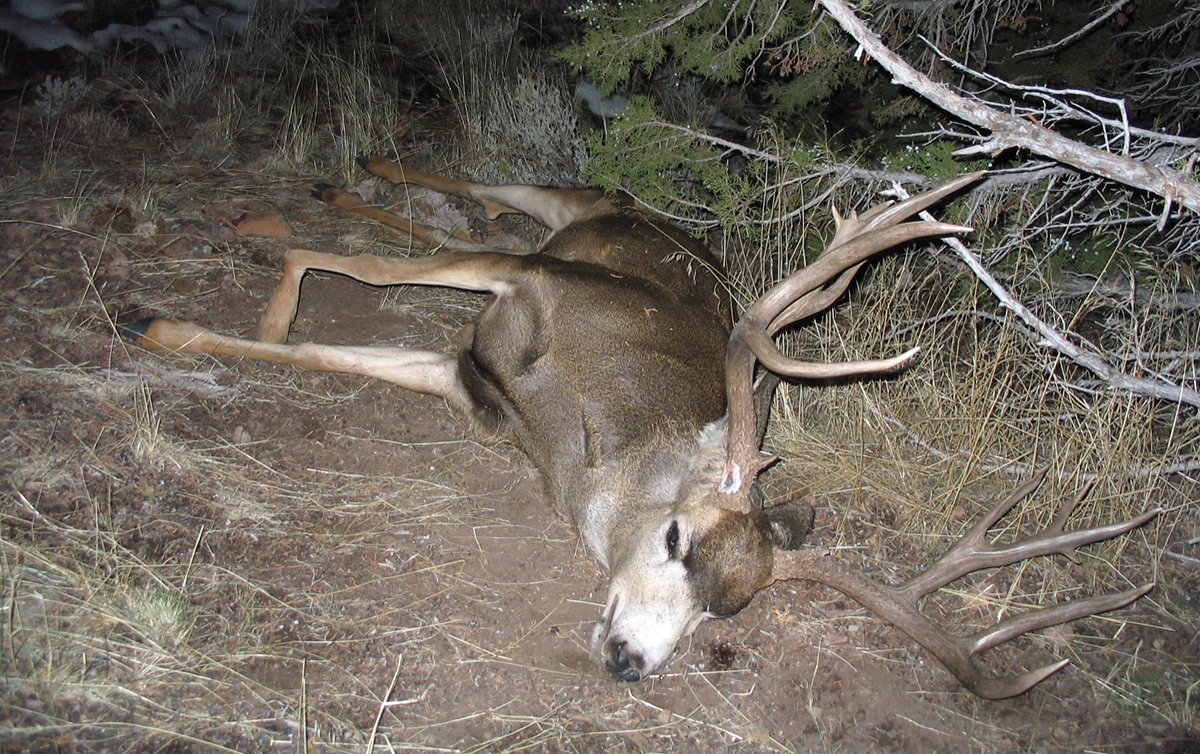
Four tips to help fight poaching in Utah
By Mark Hadley
In addition to being observant, what’s the best thing you can do to fight poaching in Utah?
Get a license plate number for the vehicle the suspect is driving, says Trevor Doman, a Division of Wildlife Resources conservation officer in northern Utah.
“That’s the critical thing we need,” Doman says. “Having a license plate number will lead us to the individual so we can interview the person and start investigating.”
DWR officers patrol huge swaths of land in Utah, and they can’t be everywhere. That’s where you come in.
“We need your help,” Doman says. “Please keep your eyes and ears open, and report suspicious activity to us. Working together, we can keep wildlife in Utah safe.”
While wildlife violations can happen any time of the year, a spike typically occurs during the fall hunting seasons. Doman provides four tips to help fight poaching in Utah and get officers the information they need.
Get a license plate number
As mentioned, a license plate number is the most critical piece of information you can provide. If you’re not able to get a license plate number, please provide an officer with as much information as you can.
“The type and color of the vehicle the person was driving, how many people were involved and a description of what you saw are really helpful,” Doman says. “And, if you can give us a GPS coordinate, that can guide us quickly to the area where the possible violation occurred.”
Don’t confront the individual
Don’t confront someone who might be committing a poaching violation.
“Stay out of harm’s way,” Doman says. “Report what you saw, and let us contact them.”
Call the Utah Turn-in-a-Poacher (UTip) hotline
Calling the UTip hotline is the best way to get information to officers. The hotline — (800) 662-DEER 3337 — is staffed 24 hours a day, seven days a week.
If you witness a possible violation, and you can’t remember the hotline number, do a quick Internet search on your phone. Or look at a hunting or fishing license. The number is available on it.
Another option is to call 911. Doman asks you not to do this, though, unless you’re certain a poaching incident has occurred, you can’t remember or find the UTip number, and you feel the incident must be reported immediately.
“Also, if you have a license plate number but you can’t get cell reception, it’s totally fine to wait and report the incident when you get home,” Doman says. “A license plate number will lead us directly to the suspect.”
Don’t call UTip for information
Please remember that the UTip hotline is not an information line. Only call to report possible poaching and other wildlife-related crimes.
Doman says he gets a few UTip calls every a month from people who are simply looking for information.
“Every time an officer receives a UTip call, even if it isn’t related to a wildlife crime, he or she has to file a follow-up report,” Doman says. “Filing the report takes time away that could have been spent fighting wildlife crime in Utah. Please call the UTip line only to report wildlife crimes. If you’re simply looking for information, call a DWR office. The person who answers the phone will be happy to help you.”
Articles related to “Four tips to help fight poaching in Utah”
A condor dies in Zion National Park and we’re supposed to stop using lead ammunition?
OPINION: Hunters and the shoot it, shovel it, and shut up mentality



